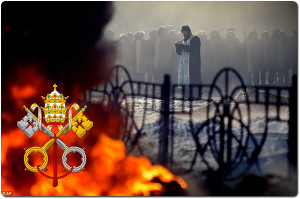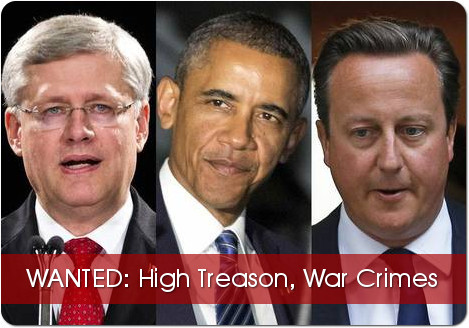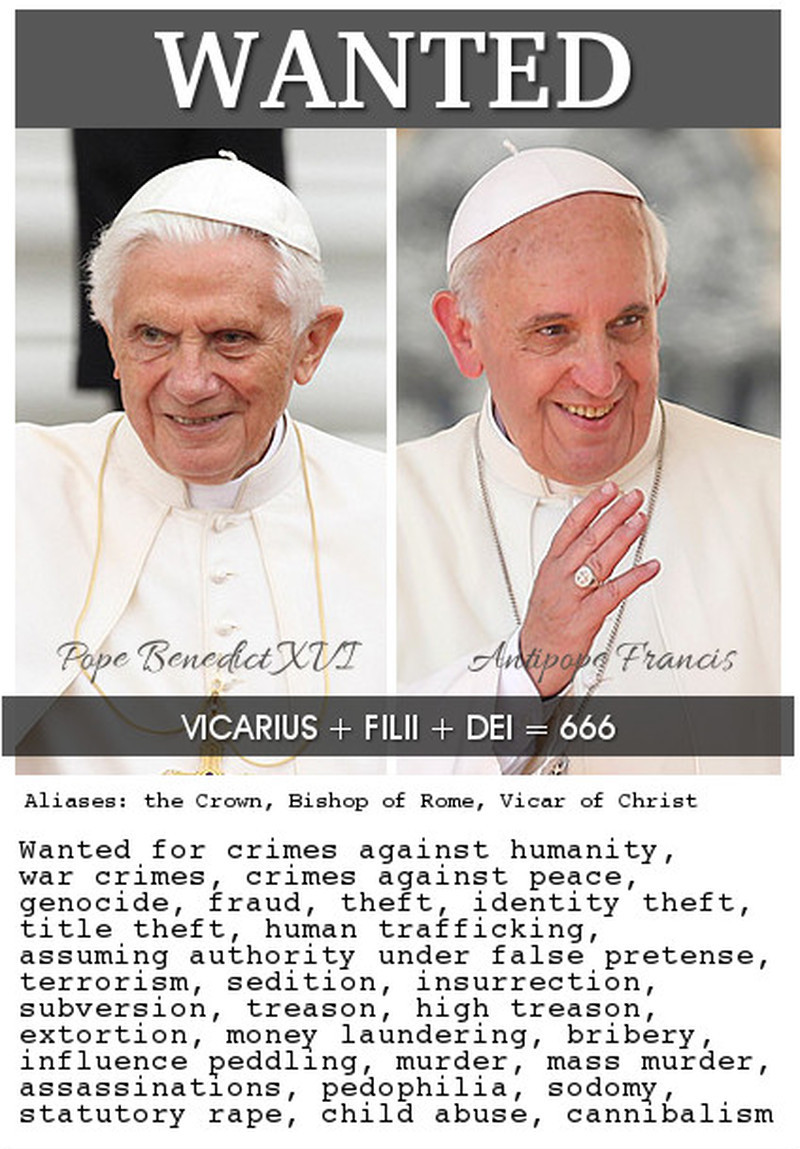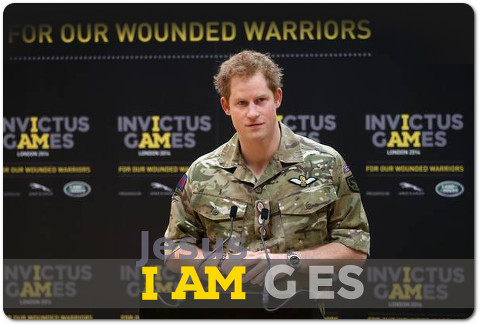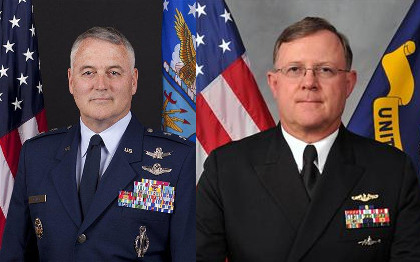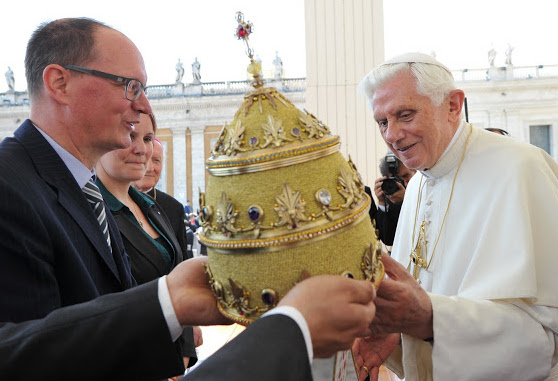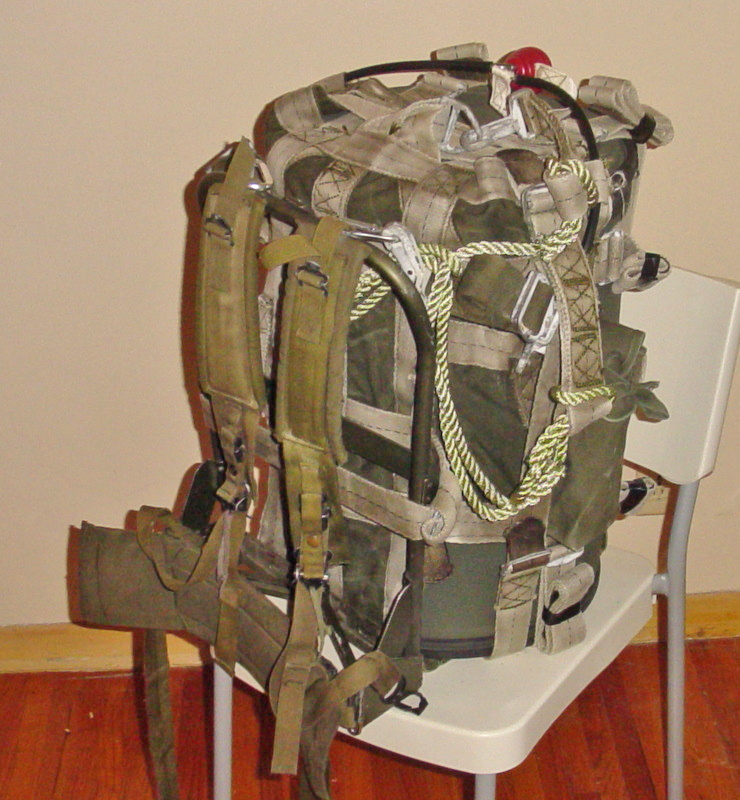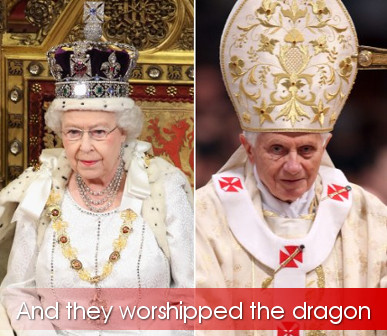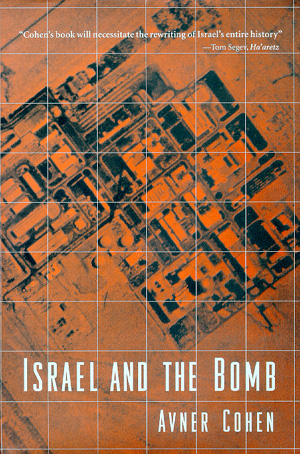Canadian government officials are guilty of Crimes Against Peace, Genocide, Crimes Against Humanity and War Crimes
Heinous Crimes, World news Tuesday, December 14th, 2010Between 48% to 62% of Canadians not only question but oppose our engagement of troops in this illegal war of aggression against the Afghan people. A war fought not out of self-defense or against terrorism but explicitly for exploiting the oil and natural gas supplies of the Caspian / Central Asian region.
There is already enough concrete evidence collected to indict Canadian Prime Minster Stephen Harper, Defense Minister Peter Gordon MacKay, former Prime Ministers Jean Chrétien and Paul Martin for Crimes Against Peace, Genocide, Crimes Against Humanity and War Crimes.
The time has come for all of us to stand up for the rights of our fellow man. It is time for us to help the people of Afghanistan regain their freedom from the unlawful act of aggression and military occupation by the US, Canada and NATO countries. The attacks against the US on September 11, 2001 were criminal acts (Unlawful Seizure of Aircrafts) not acts of war. No foreign state or foreign military attacked the US on September 11, 2001. The attackers were criminals with criminal intent to cause harm to the US.
There is absolutely no evidence that Afghanistan took part in the attacks of 9/11. Not one hijacker was a Afghan citizen nor a Taliban. The FBI list of individuals believed to be the hijackers of the four airliners that crashed on September 11, 2001 is found here – http://www.fbi.gov/pressrel/pressrel01/092701hjpic.htm. No Afghan military aircraft took part in the attacks. There is absolutely no link between Afghanistan and the attacks of September 11, 2001. The US FBI Most Wanted Posted for bin Laden doesn’t even mention the attacks of September 11, 2001. That means the US government doesn’t even have any evidence to link bin Laden to 9/11. That means the US, Canadian and NATO military attack against Afghanistan is illegal. That means the US, Canadian and NATO military attack against Afghanistan is an illegal war of aggression – Crimes Against Humanity and War Crimes.

Canadian Criminal Code
Crimes Against Humanity and War Crimes Act, S.C. 2000, c. 24 – An Act respecting genocide, crimes against humanity and war crimes and to implement the Rome Statute of the International Criminal Court, and to make consequential amendments to other Acts.
Crimes Against Humanity and War Crimes Act, S.C. 2000, c. 24 http://www.canlii.org/en/ca/laws/stat/sc-2000-c-24/latest/sc-2000-c-24.html declares:
6. (1) Every person who, either before or after the coming into force of this section, commits outside Canada
(a) genocide,
(b) a crime against humanity, or
(c) a war crime,
is guilty of an indictable offence and may be prosecuted for that offence in accordance with section 8.
Conspiracy, attempt, etc.
(1.1) Every person who conspires or attempts to commit, is an accessory after the fact in relation to, or counsels in relation to, an offence referred to in subsection (1) is guilty of an indictable offence.
Punishment
(2) Every person who commits an offence under subsection (1) or (1.1)
(a) shall be sentenced to imprisonment for life, if an intentional killing forms the basis of the offence; and
(b) is liable to imprisonment for life, in any other case.
Definitions
(3) The definitions in this subsection apply in this section.
“crime against humanity” means murder, extermination, enslavement, deportation, imprisonment, torture, sexual violence, persecution or any other inhumane act or omission that is committed against any civilian population or any identifiable group and that, at the time and in the place of its commission, constitutes a crime against humanity according to customary international law or conventional international law or by virtue of its being criminal according to the general principles of law recognized by the community of nations, whether or not it constitutes a contravention of the law in force at the time and in the place of its commission.
“genocide” means an act or omission committed with intent to destroy, in whole or in part, an identifiable group of persons, as such, that at the time and in the place of its commission, constitutes genocide according to customary international law or conventional international law or by virtue of its being criminal according to the general principles of law recognized by the community of nations, whether or not it constitutes a contravention of the law in force at the time and in the place of its commission.
“war crime” means an act or omission committed during an armed conflict that, at the time and in the place of its commission, constitutes a war crime according to customary international law or conventional international law applicable to armed conflicts, whether or not it constitutes a contravention of the law in force at the time and in the place of its commission.
Interpretation — customary international law
(4) For greater certainty, crimes described in articles 6 and 7 and paragraph 2 of article 8 of the Rome Statute are, as of July 17, 1998, crimes according to customary international law, and may be crimes according to customary international law before that date. This does not limit or prejudice in any way the application of existing or developing rules of international law.
Interpretation — crimes against humanity
(5) For greater certainty, the offence of crime against humanity was part of customary international law or was criminal according to the general principles of law recognized by the community of nations before the coming into force of either of the following:
(a) the Agreement for the prosecution and punishment of the major war criminals of the European Axis, signed at London on August 8, 1945; and
(b) the Proclamation by the Supreme Commander for the Allied Powers, dated January 19, 1946.
The US, Canadian and NATO military (armed) attacks against Afghanistan is a violation of US, Canadian and International Law and Treaties. The attack was and is still illegal as Afghanistan did not attack the US, Canada or any other NATO (North Atlantic Treaty Organization) nation.
A war of aggression is a military conflict waged absent the justification of self-defense. Waging such a war of aggression is a crime under the customary international law. The International Military Tribunal at Nuremberg, which followed World War II, called the waging of aggressive war “essentially an evil thing…to initiate a war of aggression…is not only an international crime; it is the supreme international crime, differing only from other war crimes in that it contains within itself the accumulated evil of the whole.”
In 1945, the London Charter of the International Military Tribunal defined three categories of crimes, including crimes against peace. This definition was first used by Finland to prosecute the political leadership in the War-responsibility trials in Finland. The principles were later known as the Nuremberg Principles.
In 1950, the Nuremberg Tribunal defined Crimes against Peace, in Principle 6, specifically Principle VI(a), submitted to the United Nations General Assembly, as:
(i) Planning, preparation, initiation or waging of a war of aggression or a war in violation of international treaties, agreements or assurances;
(ii) Participation in a common plan or conspiracy for the accomplishment of any of the acts mentioned under (i).
* Article 1: The Purposes of the United Nations are:
1. To maintain international peace and security, and to that end: to take effective collective measures for the prevention and removal of threats to the peace, and for the suppression of acts of aggression or other breaches of the peace, and to bring about by peaceful means, and in conformity with the principles of justice and international law, adjustment or settlement of international disputes or situations which might lead to a breach of the peace;
2. To develop friendly relations among nations based on respect for the principle of equal rights and self-determination of peoples, and to take other appropriate measures to strengthen universal peace;
* Article 2, paragraph 4
All Members shall refrain in their international relations from the threat or use of force against the territorial integrity or political independence of any state, or in any other manner inconsistent with the Purposes of the United Nations.
The North Atlantic Treaty
Washington D.C. – 4 April 1949
The Parties to this Treaty reaffirm their faith in the purposes and principles of the Charter of the United Nations and their desire to live in peace with all peoples and all governments.
They are determined to safeguard the freedom, common heritage and civilisation of their peoples, founded on the principles of democracy, individual liberty and the rule of law. They seek to promote stability and well-being in the North Atlantic area.
They are resolved to unite their efforts for collective defence and for the preservation of peace and security. They therefore agree to this North Atlantic Treaty :
Article 1
The Parties undertake, as set forth in the Charter of the United Nations, to settle any international dispute in which they may be involved by peaceful means in such a manner that international peace and security and justice are not endangered, and to refrain in their international relations from the threat or use of force in any manner inconsistent with the purposes of the United Nations.
Article 2
The Parties will contribute toward the further development of peaceful and friendly international relations by strengthening their free institutions, by bringing about a better understanding of the principles upon which these institutions are founded, and by promoting conditions of stability and well-being. They will seek to eliminate conflict in their international economic policies and will encourage economic collaboration between any or all of them.
Article 3
In order more effectively to achieve the objectives of this Treaty, the Parties, separately and jointly, by means of continuous and effective self-help and mutual aid, will maintain and develop their individual and collective capacity to resist armed attack.
According to Canadian and customary international law or conventional international law Prime Minster Stephen Harper, Defense Minister Peter Gordon MacKay, former Prime Ministers Jean Chrétien and Paul Martin are guilty of indictable offenses. Canada’s military armed attacks against Afghanistan, the Afghan people and the legal Afghan Taliban ruling party is a war of aggression – a military conflict waged absent the justification of self-defense. Canada was not attacked by Afghanistan. Canada are accomplices, aiding and abetting, in the United States unlawful attack against Afghanistan and to this day continues to occupy and mount military “armed” attacks against the civilian population of Afghanistan. To this day Stephen Harper illegally authorizes Canadian soldiers to hunt down and murder all Taliban members, which according to Canadian and International Laws is defined as the criminal offense called genocide – a criminal act committed with intent to destroy, in whole or in part, an identifiable group of persons (the Taliban). The Afghan people and the Taliban are not the enemy. The leaders of the US, Canada and NATO are the enemy. They are the ones who launched an illegal war against a country that did not attack the US, Canada or any NATO country – waged absent the justification of self-defense.
It is our duty as Canadians to set an example. We are a country of countries. We are a peaceful nation and we are peace keepers. We have an ethical, moral and legal responsibility to the World. We have a duty to make things right again and it all begins with indicting Prime Minster Stephen Harper, Defense Minister Peter Gordon MacKay, former Prime Ministers Jean Chrétien and Paul Martin for Crimes Against Peace, Genocide, Crimes Against Humanity and War Crimes. When we make Prime Minster Stephen Harper, Defense Minister Peter Gordon MacKay, former Prime Ministers Jean Chrétien and Paul Martin accountable for their crimes against the Afghan people then other nations will do the same.
2011 will be the year when wrongs are made right. When the Afghanistan victims of these grave and gross injustices will finally see justice. When Canadian government officials are indicted for Crimes Against Peace, Genocide, Crimes Against Humanity and War Crimes. Only then can Canada become a peacekeeping nation again.
On Friday October 1, 2004 Turkmenistan President Niyazov invited Oman and Canada to participate in oil and gas projects, including construction of a Trans-Afghan Pipeline (TAP) and modernization of the Seyidi refinery. A Omani-Canadian delegation including Yusuf bin Alavi, foreign minister of Oman and Jean Chretien, former prime minister of Canada, met Niyazov to discuss cooperation in the energy and hydrocarbon sectors. Heads of some major Canadian and Omani energy companies were also in the delegation. Jean Chretien, who committed Canada to the US unlawful attack against Afghanistan and its civilian population is now an adviser to Bennett Jones, a Calgary-based law firm specializing in energy issues. In addition, he is international relations adviser to PetroKazakhstan Inc., an energy firm based in Calgary with major interests in Kazakhstan and Caspian. The US, Canadian and NATO attack on Afghanistan had nothing to do with the events of September 11, 2001 or anything to do with capturing the US alleged mastermind of 9/11 bin Laden. The US, Canadian and NATO attacked Afghanistan to take from the Afghan people its financial future – the Trans-Afghan Pipeline, a pipeline that would transport Turkmenistan natural gas to Pakistan through Afghanistan.
We must hold our elected officials accountable for their actions and when their actions are deemed illegal, pursuant to Canadian and International Law and Treaties, indict them for the crimes that they commit. Justice can only be served and peace can only be achieved when we restore the freedom to the Afghan people – the stated purpose and goal of the United Nations, the North Atlantic Treaty, and of all peacemakers.
Short URL: https://presscore.ca/news/?p=254

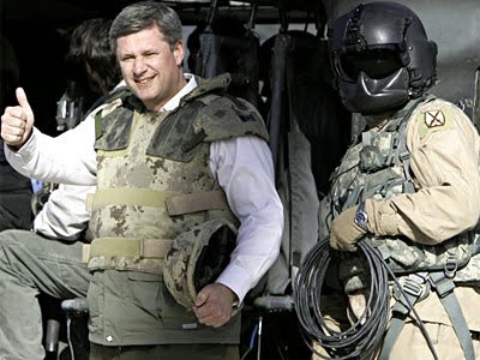
 The Halifax International Security Forum was founded in 2009 as a propaganda program within the German Marshall Fund (founded June 5, 1972 by West German Chancellor Willy Brandt) by the Crown in Canada using Crown Corp ACOA & DND funds. The Halifax International Security Forum is a front that is used to recruit top US, UK and Canadian gov and military officials as double agents for Canada's WWI, WWII enemy and wage new Vatican Germany Cold War.
High Treason: s.46 (1) Every one commits high treason who, in Canada (c) assists an enemy at war with Canada, ..., whether or not a state of war exists". Every one who, in Canada assists Canada's enemies wage "piecemeal WWIII" Cold War by organizing, funding and participating in the Germany government politically and militarily benefitting / lead Halifax International Security Forum is committing high treason.
The Halifax International Security Forum was founded in 2009 as a propaganda program within the German Marshall Fund (founded June 5, 1972 by West German Chancellor Willy Brandt) by the Crown in Canada using Crown Corp ACOA & DND funds. The Halifax International Security Forum is a front that is used to recruit top US, UK and Canadian gov and military officials as double agents for Canada's WWI, WWII enemy and wage new Vatican Germany Cold War.
High Treason: s.46 (1) Every one commits high treason who, in Canada (c) assists an enemy at war with Canada, ..., whether or not a state of war exists". Every one who, in Canada assists Canada's enemies wage "piecemeal WWIII" Cold War by organizing, funding and participating in the Germany government politically and militarily benefitting / lead Halifax International Security Forum is committing high treason.
 Please take a moment to sign a petition to
Please take a moment to sign a petition to 











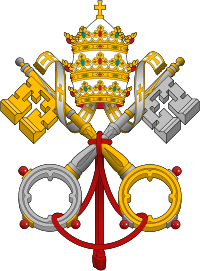






















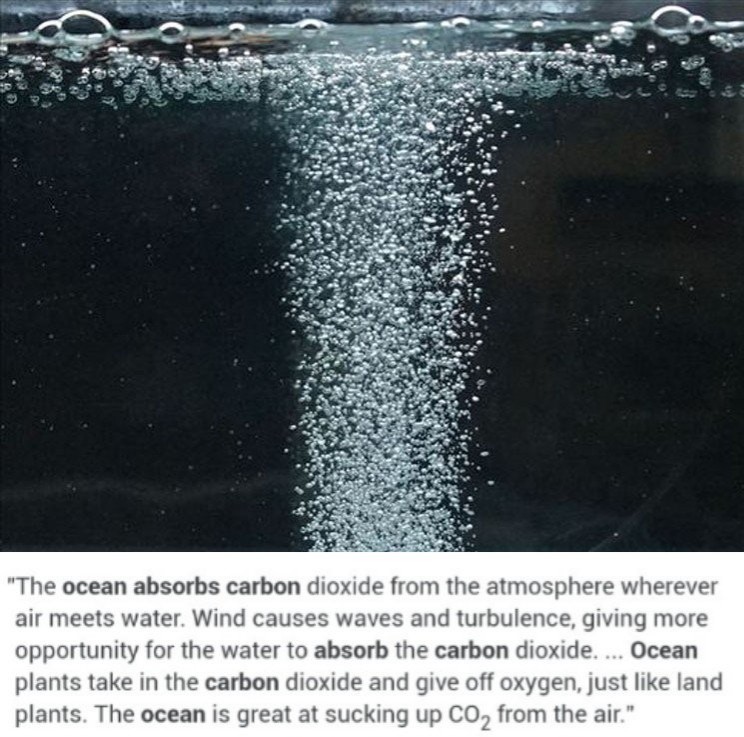
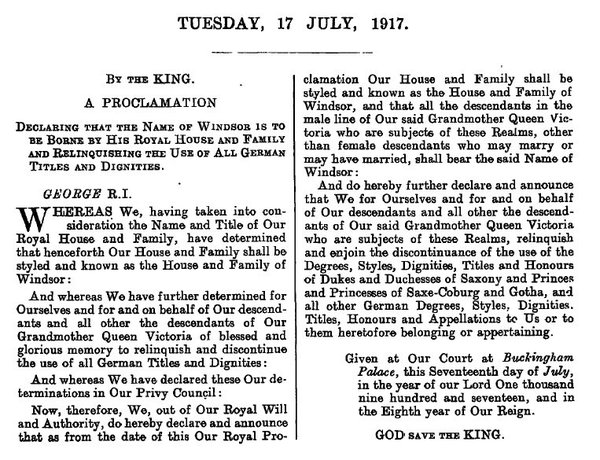




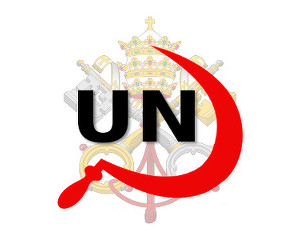
 1917 Code of Canon Law, Canon 185 invalidates (voids) all papacies since October 26, 1958 due to the fact Cardinal Giuseppe Siri was elected Pope on the Third ballot on Oct 26 1958 but the new Pope Gregory XVII was illegally prevented from assuming the office. A Pope was elected on October 26, 1958. Thousands of people witnessed a new Pope being elected by seeing white smoke and millions were informed by Vatican radio broadcasts beginning at 6:00 PM Rome time on October 26, 1958. The papacy of Francis, Benedict, John Paul II, John Paul I, Paul VI, John XXIII and any and all of their respective doctrines, bulls, letter patents and the Second Vatican Council are all invalidated (having no force, binding power, or validity) by Canon 185 because the 1958 conclave of cardinals elected Cardinal Giuseppe Siri Pope on Oct 26 1958. Cardinal Giuseppe Siri accepted the papacy by taking the name Pope Gregory XVII but was illegally prevented from assuming his elected office.. According to Canon 185 Cardinal Angelo Giuseppe Roncalli illegally assumed the papacy 2 days later by fraud and grave fear, unjustly inflicted against Cardinal Giuseppe Siri who was lawfully elected Pope Gregory XVII. Because no Pope has been lawfully elected since October 26, 1958 the Holy See (la Santa Sede/Seat) remains vacant.
1917 Code of Canon Law, Canon 185 invalidates (voids) all papacies since October 26, 1958 due to the fact Cardinal Giuseppe Siri was elected Pope on the Third ballot on Oct 26 1958 but the new Pope Gregory XVII was illegally prevented from assuming the office. A Pope was elected on October 26, 1958. Thousands of people witnessed a new Pope being elected by seeing white smoke and millions were informed by Vatican radio broadcasts beginning at 6:00 PM Rome time on October 26, 1958. The papacy of Francis, Benedict, John Paul II, John Paul I, Paul VI, John XXIII and any and all of their respective doctrines, bulls, letter patents and the Second Vatican Council are all invalidated (having no force, binding power, or validity) by Canon 185 because the 1958 conclave of cardinals elected Cardinal Giuseppe Siri Pope on Oct 26 1958. Cardinal Giuseppe Siri accepted the papacy by taking the name Pope Gregory XVII but was illegally prevented from assuming his elected office.. According to Canon 185 Cardinal Angelo Giuseppe Roncalli illegally assumed the papacy 2 days later by fraud and grave fear, unjustly inflicted against Cardinal Giuseppe Siri who was lawfully elected Pope Gregory XVII. Because no Pope has been lawfully elected since October 26, 1958 the Holy See (la Santa Sede/Seat) remains vacant.
 Hold the Crown (alias for temporal authority of the reigning Pope), the Crown appointed Governor General of Canada David Lloyd Johnston, the Crown's Prime Minister (servant) Stephen Joseph Harper, the Crown's Minister of Justice and Attorney General Peter Gordon MacKay and the Crown's traitorous military RCMP force, accountable for their crimes of treason and high treason against Canada and acts preparatory thereto. The indictment charges that they, on and thereafter the 22nd day of October in the year 2014, at Parliament in the City of Ottawa in the Region of Ontario did, use force and violence, via the staged false flag Exercise Determined Dragon 14, for the purpose of overthrowing and besieging the government of Canada contrary to Section 46 of the Criminal Code. In a society governed by the rule of law, the government and its officials and agents are subject to and held accountable under the law. Sign the online
Hold the Crown (alias for temporal authority of the reigning Pope), the Crown appointed Governor General of Canada David Lloyd Johnston, the Crown's Prime Minister (servant) Stephen Joseph Harper, the Crown's Minister of Justice and Attorney General Peter Gordon MacKay and the Crown's traitorous military RCMP force, accountable for their crimes of treason and high treason against Canada and acts preparatory thereto. The indictment charges that they, on and thereafter the 22nd day of October in the year 2014, at Parliament in the City of Ottawa in the Region of Ontario did, use force and violence, via the staged false flag Exercise Determined Dragon 14, for the purpose of overthrowing and besieging the government of Canada contrary to Section 46 of the Criminal Code. In a society governed by the rule of law, the government and its officials and agents are subject to and held accountable under the law. Sign the online  Two of the most obvious signs of a dictatorship in Canada is traitorous Stephen Harper flying around in a "military aircraft" and using Canadian Special Forces "military" personnel from JTF2 and personnel from the Crown's traitorous martial law "military" RCMP force as his personal bodyguards.
Two of the most obvious signs of a dictatorship in Canada is traitorous Stephen Harper flying around in a "military aircraft" and using Canadian Special Forces "military" personnel from JTF2 and personnel from the Crown's traitorous martial law "military" RCMP force as his personal bodyguards.

